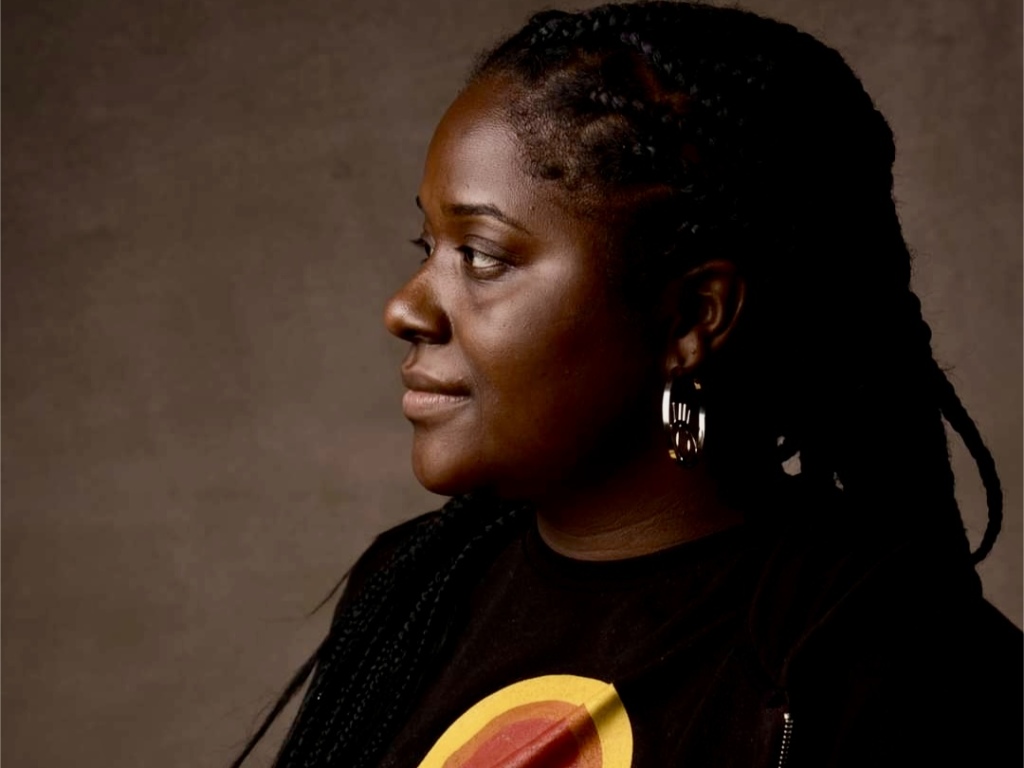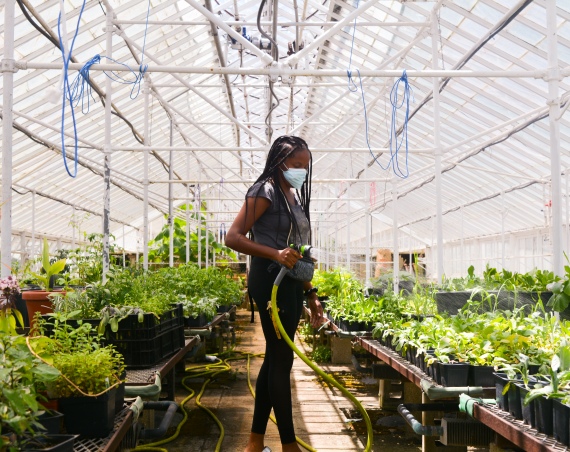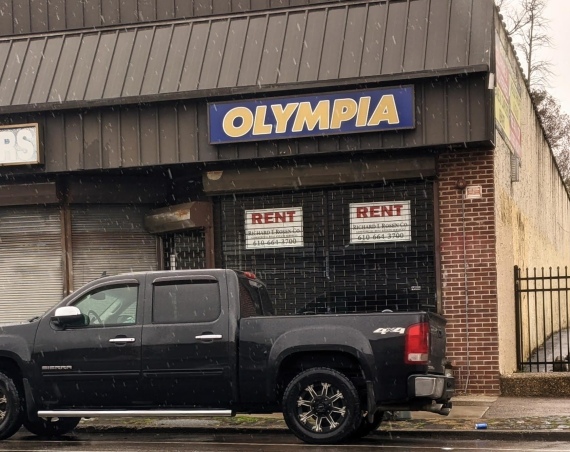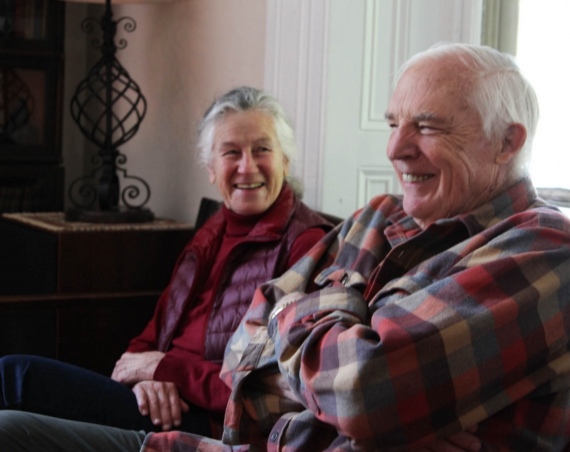
Eboni Zamani is a Black filmmaker who is Nicetown-born and who spent much of her coming-of-age with family and friends in Germantown. Years later, Zamani has officially made Germantown her home.
Currently, she is working on two exciting ventures — a dramedy web series titled “A Song for Nia,” loosely based on her own life, and an augmented reality (AR) interactive documentary called “Air Quality Orange,” which will explore environmental issues impacting Philly’s Black and Latino communities.
She expresses the immense excitement and weight the projects bring her, saying, “Both of these projects are actually new for me because, in the past, I’ve been trying to get feature-length work done for quite some time.” She says she’s been wanting to build AR skills for a while but finally had the chance when she became a Black Public Media Fellow last year.
In addition to her work as a filmmaker, Zamani is a writer who regularly contributes to Germantown Info Hub (GIH). One of her recent articles, titled “From Philly to Beyond: The Uneasy of Jawn,” touches on the challenges of Black culture becoming a commodity, explicitly using the example of the term “Jawn” gaining mainstream popularity. In the article, she urges people to value Black culture beyond superficial elements and to recognize its true worth.
The local filmmaker shares her favorite things about the neighborhood with GIH.
Favorite place to get food
Zamani recently became a vegan, so we allowed her to recommend vegan-friendly options and her favorite meat-eating pastimes. She names the Nile Cafe and All The Way Live for vegan options. She says she gets whatever the Nile Cafe is offering at the time but loves the Lasagna from All The Way Live.
For her carnivorous recommendations, Zamani names K&J Caribbean-American Diner for their stewed chicken and oxtail platters and Ed’s Pizza House for their pizzas and strombolis.
Favorite park
She names Fern Hill Park as her choice, talking about its sentimental value. “I have a lot more memories growing up because Fern Hill was close enough to Nicetown, too,” Zamani says. “Sometimes when we would get together with the family that was in Germantown and Fern Hill was kind of like the meetup place.”
Favorite leisure activity
Zamani shares, “I really like walking up and down Germantown Avenue because there’s so much. There’s so many more and new small black businesses and local businesses, and I just like popping in and out, talking to people.”
Favorite shops to frequent
On the retail end of things, Zamani says she frequently goes to Beaucoup Hoodoo, where she recently purchased some books on African Spirituality. She also says she recently got a top from Perfectly Flawless for one of her film projects.
Most frequent uses of public transportation
Though she’s recently become an “Uber girl,” Zamani says the 23 is her most regular pastime using SEPTA. She jokes about the once-longest bus route in Philly ride, saying, “It was always a time, all the time! It was never going to be a dull moment… ever!”
Recommended historic destination
“I think I would say the Johnson House,” the filmmaker shares. “Probably because of the Underground Railroad connections. And when I was younger, that was one of the sites my grandparents took us to pretty regularly.”
Favorite fun fact about Germantown
Zamani says that she loves that the neighborhood offers a good amount of fruit stands, typically around Chelten Avenue between Greene Street and Wayne Avenue, because she loves fresh fruits.
Her favorite Germantown neighbors and community groups
She names Keisha Whatley and the Germantown ArtHaus as a community organization that she says deserves more praise, saying, “I feel like she makes real effort to connect with other artists and people in Germantown.”
She continues: “I’m gonna be really excited when it fully opens. It’ll be a great hub or space that people can gather at and stuff.
One addition she’d like to see to the neighborhood
Zamani says she would love to see a more youth-centered culture center. She elaborates: “They need spaces and they need to be a part of what’s going on and how it’s going on.”



